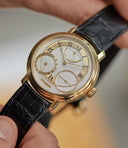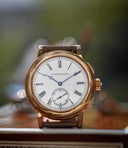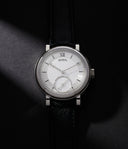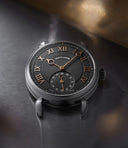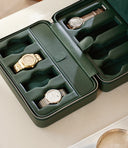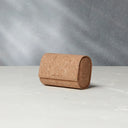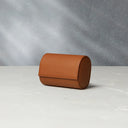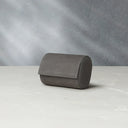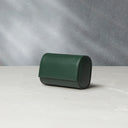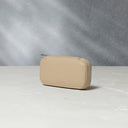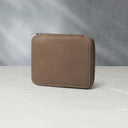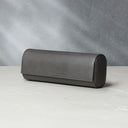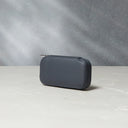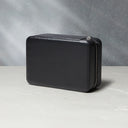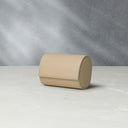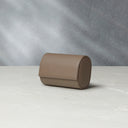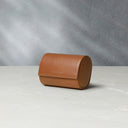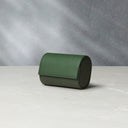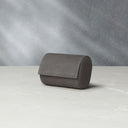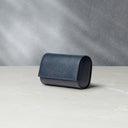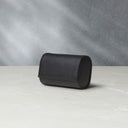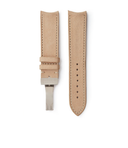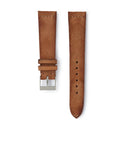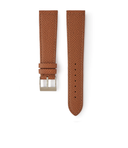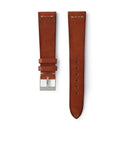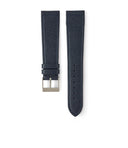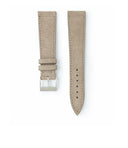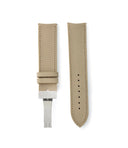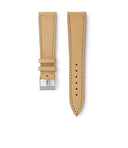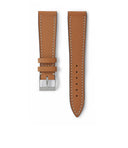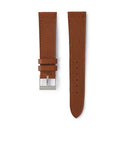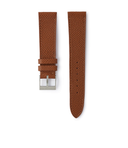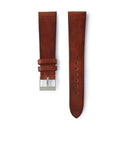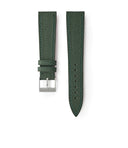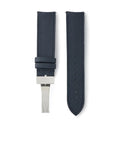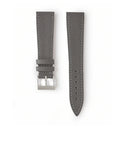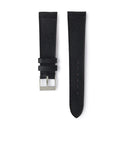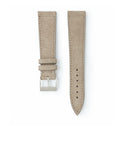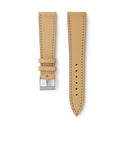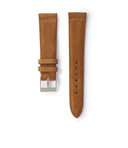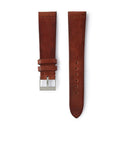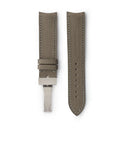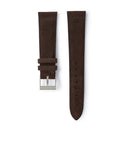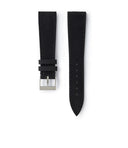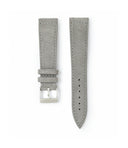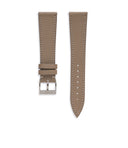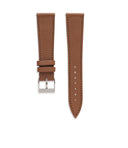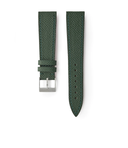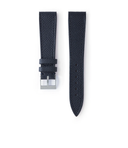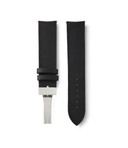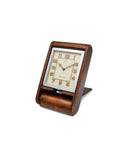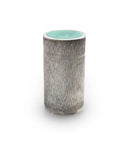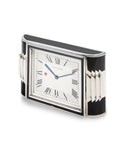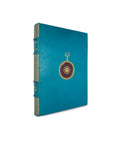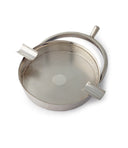The Rebirth of A. Lange & Söhne
The name Lange has been tied to watchmaking and the Saxony area of Germany for centuries. In the 1800s, Ferdinand Aldoph Lange – which is where the “A” in A. Lange & Söhne comes from – began his watchmaking journey under the tutelage of master watchmaker Johann Christian Friedrich Gutkaes. Passed from father to son, the Lange name flourished, before encountering considerable obstacles during the 20th century. The brand got caught up in the turmoil caused by World War One, the financial crash of 1929, World War Two and was finally placed under the rule of the Soviet Union. The company was nationalised for the next 45 years, essentially spelling the end of the A. Lange & Söhne name.
Years later, in 1990, the brand was resuscitated by the great-grandson of Ferdinand Adolph Lange, Walter, and watch industry veteran, Günter Blümlein. Blümlein, a Nuremberg native who grew up in post-War Germany, had previously overseen the resurgence of IWC and Jaeger-LeCoultre. This started the four-year journey that Lange and Blümlein would go on with their small team to bring the company back from the ashes, with the release of their first four models on the 24th of October, 1994. The brand released four innovative models, all of them with their own distinctive visual language, the Arkade, Saxonia, Tourbillon Pour le Mérite and the Lange 1.
The Ref. 101.029
One of the first watches released by A. Lange & Söhne following the resuscitation of the brand, the Lange 1 has become a modern icon in its own right. The decentralised arrangement of the displays on the dial is characteristic, with the centres of the displays designed to form the corners of an isosceles triangle. The masterful use of empty space, with none of the displays overlapping, creates an overall sense of balance and refinement.
While the piece displays much of the Lange 1’s classic styling, it distinguishes itself with a white gold case and jet-black dial. Exhibiting an aesthetic that is undeniably Lange, an oversized ‘outer’ aperture is displayed at the top right corner of the dial, inspired by the Five-Minute Clock at Semper Opera House in Dresden. At 3 o’clock, the power reserve is indicated in German, a reminder of the manufacture’s origins.
Produced between 2003 and 2007, this reference 101.029 is also distinguished by luminous filled, dauphine-shaped hands which are rendered in white gold. These pair alongside the additional luminous detailing found across the dial. The jet-black dial contrasts against the white gold case, hands, index markers, and with the same white metal framing, which surrounds the date aperture. The styling is very reminiscent of its sister reference, the 101.035 "Darth", which was in production between 1999 to 2006. The luminous material is carried over from the hands, in addition to the Roman numerals and power reserve indicators, bringing further usability to the reference.
The two lightly recessed subsidiary dials are a similar jet-black to the rest of the dial, with the indication for the hours, minutes and seconds. These are decorated with the same satin-brushed finishing, allowing for a soft sheen when light is angled towards the face. On this reference, stark white outlining is used to surround both subsidiary dials, with the brushed centre portions also highlighted in white. These white borders bring a chapter-ring like quality to the dial, further enhancing the balance and geometry of the design.
The Movement
This Ref. 101.029 is powered by the calibre L901.0, based on a Jaeger-LeCoultre caliber 822 gear train that Günter Blümlein brought over. The movement is comprised of 398 components, of which 54 are jewels and five screwed gold chatons – the latter of which is a mark of Lange’s traditionally German movement. The watch has a lever escapement and the balance beats at 21,600 A/h.
The aesthetics of the movement are just as impressive as the mechanics, with chamfering and interior angles superbly hand-finished. Moreover, it features an artistic flourish, a balance-cock engraved by one of Lange’s master engravers. In fact, it is said that each individual watchmaker's unique engraving style can be identified as a result. One of the many things that helped to cement this movement as a German, and not a Swiss one, was the use of untreated German silver. This metal not only gave the movements a unique shine, but over time they can start to develop a much richer hue that is distinct to the brand – when viewed through the sapphire caseback, we see that the movement of this Ref. 101.029 is beginning to age very attractively.
The Set
This Lange 1 Ref. 101.029 comes in an outer and inner box and is accompanied by a Guarantee and Service booklet, a Lange 1 instructional booklet, and a small card detailing the movement number and where it was sold. An additional A. Lange & Söhne black strap is also included, with the corresponding white gold buckle.
Viewings are currently suspended for the time being.
























































































